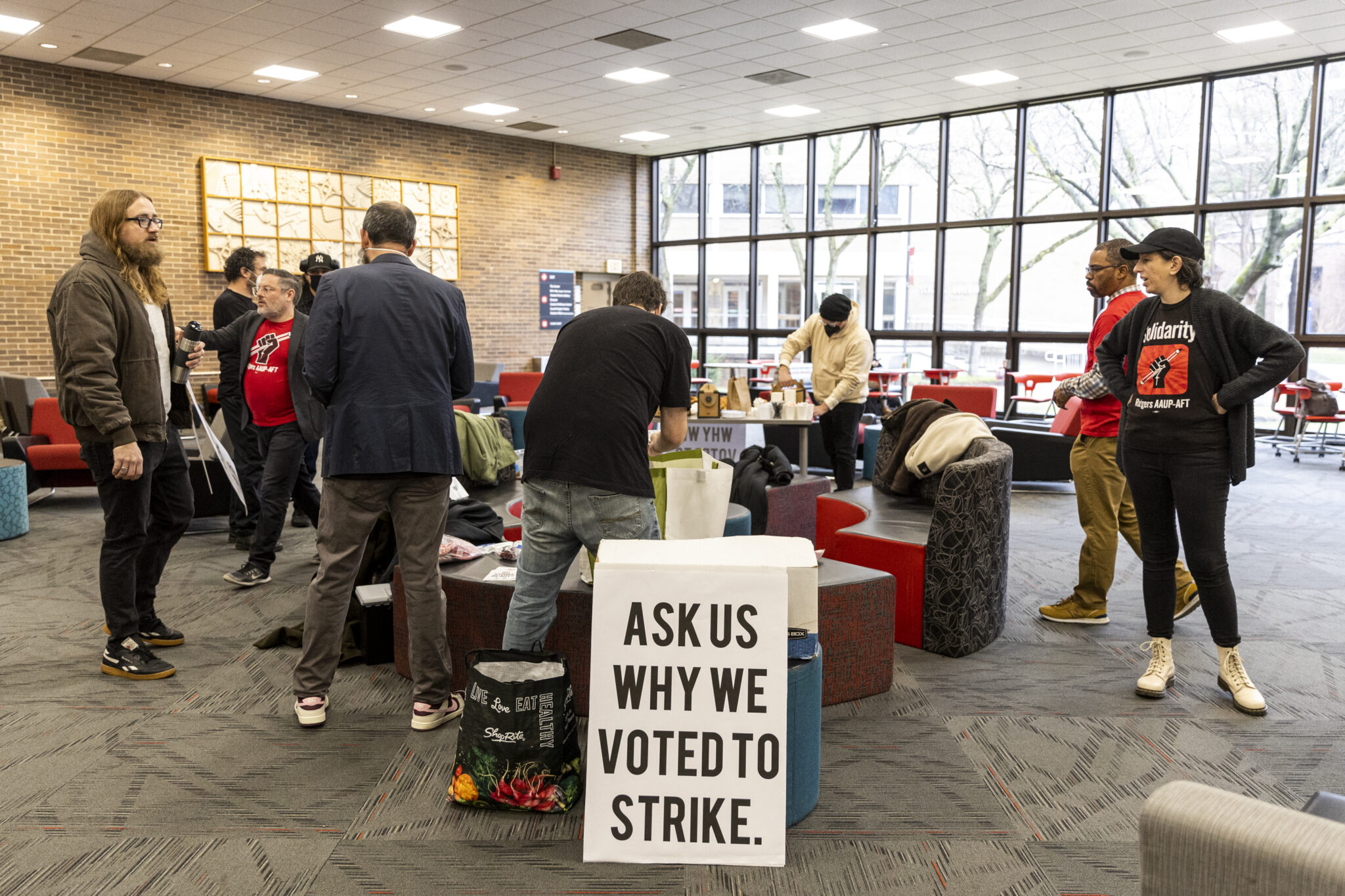Jacqueline Rayfield is a student at Harvard Law School.
In today’s News and Commentary, Rutgers University academic workers’ strike continues into its third day, Rhode Island School of Design teamsters strike reached its ninth, and the Union of Southern Service Workers alleges discrimination by South Carolina state agency in workplace inspections.
Three unions, including the Rutgers AAUP-AFT full-time faculty, graduate workers, postdoctoral associates; the Rutgers PTLFC-AAUP-AFT part-time lecturers; and AAUP-BHSNJ health sciences school workers, continue their strike on Rutgers’ campus into its third day. In a Monday email, Rutgers’ president, whose salary rose to $1.2 million per year in 2020, threatened legal action to force workers to end their strike. Workers since Monday have halted all work activity other than essential medical care and research.
At the Rhode Island School of Design (RISD), a prestigious art school in Providence, RI, teamsters movers, custodians, and ground service workers are well into their second week of striking. Workers ask for an increase in wages, which according to one employee amount to as little as $15.65 per hour, following the increased work hours and inflation since Covid-19 in 2020. Since the strike began last week, more than 200 students have joined striking workers and plastered campus walls with “art strike” posters in support of employees.
The Union of Southern Service Workers, an outgrowth of the Fight for $15 campaign, alleges discrimination in workplace inspections by the South Carolina Occupational Safety and Health Administration in a complaint to the U.S. Department of Labor. The union, which represents mainly retail, fast food, and warehouse employees, highlights in its own analysis that the agency has conducted zero programmed inspections from 2018 to 2022 of food and beverage or general retail employers. Black workers make up between 37.9% and 45.9% of workers in those industries. By comparison, the construction industry received 237 programmed inspections in that time, where the workforce is composed of over 90% white workers. The union claims that this disparity leaves black workers vulnerable to unsafe working conditions.






Daily News & Commentary
Start your day with our roundup of the latest labor developments. See all
July 15
The Department of Labor announces new guidance around Occupational Safety and Health Administration penalty and debt collection procedures; a Cornell University graduate student challenges graduate student employee-status under the National Labor Relations Act; the Supreme Court clears the way for the Trump administration to move forward with a significant staff reduction at the Department of Education.
July 14
More circuits weigh in on two-step certification; Uber challengers Seattle deactivation ordinance.
July 13
APWU and USPS ratify a new contract, ICE barred from racial profiling in Los Angeles, and the fight continues over the dismantling of NIOSH
July 11
Regional director orders election without Board quorum; 9th Circuit pauses injunction on Executive Order; Driverless car legislation in Massachusetts
July 10
Wisconsin Supreme Court holds UW Health nurses are not covered by Wisconsin’s Labor Peace Act; a district judge denies the request to stay an injunction pending appeal; the NFLPA appeals an arbitration decision.
July 9
the Supreme Court allows Trump to proceed with mass firings; Secretary of Agriculture suggests Medicaid recipients replace deported migrant farmworkers; DHS ends TPS for Nicaragua and Honduras